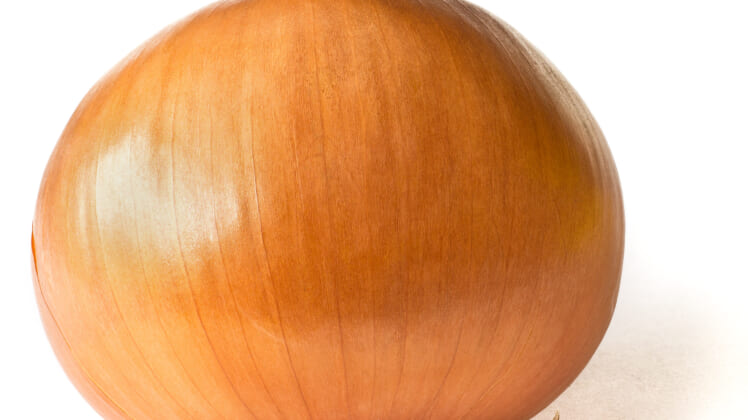17 weeks pregnant

At 17 weeks pregnant, your baby is close to 5 inches long and weighs 3.5 ounces. Her head no longer appears so large in proportion to her body. Her eyes are larger, although they will remain closed for a few more weeks. Her hair, fingernails and toenails are all growing longer. The skin has developed, but is still very thin: If you could see her, her veins might be visible through the translucent skin. Your baby is now about the size of an onion.
This week, your baby will begin to develop fat, also known as adipose tissue. These layers of fat provide protection and warmth, and will continue to develop over the next few weeks. Your baby’s circulatory system is fully functioning. Myelin, the insulating material that coats nerves and transmits neural signals, is forming around growing nerves, making your baby capable of increasingly complex behaviors.
Your baby continues to be very active and, at this point, has increasing control over her hands, which are almost fully formed. Her hands keep her busy as she puts them in her mouth, touches one hand to the other, and grasps the umbilical cord. She continues to stretch and somersault and roll inside her soft, warm environment. If you haven’t felt her movements yet, you will soon.
Your placenta is now about an inch thick, a solid blanket of blood vessels that plays a crucial role in your baby’s growth and development. The placenta provides nutrients and oxygen and removes wastes.
For many women, the second trimester is the best period of pregnancy. Your initial pregnancy symptoms — overwhelming fatigue and morning sickness — have likely eased by this point; at the same time, you are not yet so big and unwieldy that moving is a challenge. Many women also find that they are also getting more sleep, since the uterus has moved away from the bladder, causing fewer nighttime trips to the bathroom.
This is a good time to complete important projects at work, or to prepare the baby’s room. If you want to visit far-flung relatives or take a vacation with your partner, this is the ideal time in your pregnancy. You may not have the energy or the inclination for adventure later; moreover, many airlines prohibit international flight, for example, somewhere around the 32nd week of pregnancy. Take advantage of your second trimester energy and sense of well-being — but don’t over do it. Maintain a balanced diet, get plenty of rest, and avoid stress.
Of course, not every pregnant woman gets relief during her second trimester. A minority continue to have morning sickness right up to the day their baby is born. And even if you are feeling better, you are still likely to be experiencing a variety of pregnancy-related symptoms and complaints.
For many women, heartburn grows worse as the baby grows larger. Your growing uterus puts pressure on your stomach; at the same time, pregnancy hormones slow the digestion. You can minimize heartburn symptoms by eating small, frequent meals, and avoiding fatty, spicy or greasy foods. Eat slowly and chew your food carefully. Some women find that eating yogurt right before a meal also helps. Also, over-the-counter antacids such as Rolaids or Tums are generally considered safe to take during pregnancy. Ask your doctor if there are any you should avoid.
Your lazy digestive system can also cause constipation. Be sure to eat foods that contain plenty of fiber, and drink at least eight glasses of water a day. Daily exercise can also help prevent constipation. Don’t take laxatives or mineral oil. Unfortunately, constipation can trigger an even more annoying and persistent problem: hemorrhoids. Hemorrhoids are swollen veins in the rectal area, and they can cause pain, itching and bleeding. Ice packs, witch hazel, and sitz baths can all ease the discomfort of hemorrhoids. If your hemorrhoids are particularly painful or persistent, consult your practitioner.
Your growing belly may also trigger pain in your ligaments and back. The “round ligaments,” which connect the uterus to pelvic wall, are stretched during pregnancy, and may cause discomfort and pain. These symptoms do not signal permanent damage, however — and they won’t hurt the baby.
At the same time, the increased weight of your belly and breasts may lead to back pain. Be sure to maintain a straight posture. Sleep on a firm mattress, and wear low, comfortable shoes.
Along with these aches and pains, you may find that you are more clumsy than usual. Pregnancy hormones are causing your joints to soften a little, preparing the bones of the pelvis for childbirth. These hormones affect all the joints, and these changes, plus your shifted center of gravity, can make you awkward and accident-prone.
Last Updated: March 11, 2015
Pregnancy Health Library Copyright ©2015 LimeHealth. All Rights Reserved.
